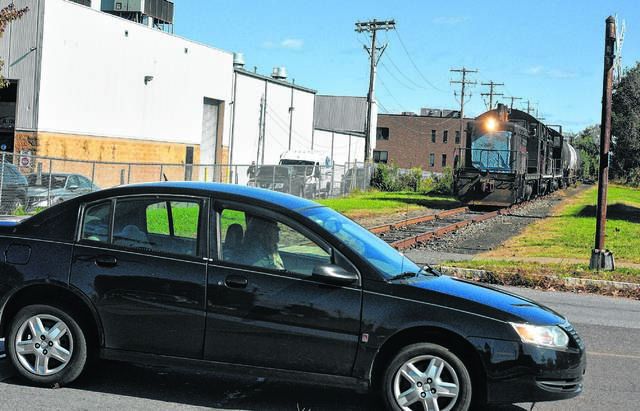Click here to subscribe today or Login.
No one needs to sell us on the value of railroad access to the local economy.
There are many bulky goods and commodities that are more efficiently moved by trains than by trucks — think liquids, lumber, and scrap metal, just to name a few — hence railroads remain a vital piece of the region’s infrastructure.
We speak in particular of the Luzerne and Susquehanna Railway Co. (LSX), which operates freight trains over a 55-mile track network in Luzerne County under a long-term agreement with the Luzerne County Redevelopment Authority, which owns those tracks.
So yes, trains are good. But like any technology, they come with drawbacks. Perhaps the biggest — and the one too many people frequently forget until the last minute — is that trains can’t swerve.
When the contest is between a train and a motor vehicle, especially a car, there is almost never a question which machine will prevail: The engineer usually survives, facing a lifetime of post-traumatic stress, and the motorist heads to the morgue.
We feel it is only a matter of time before there is such a crash in Wilkes-Barre.
Many crossings along the authority’s line, such as on busy East Market and East Northampton streets — have only “crossbuck” signs, in the shape of an X, to alert drivers to the danger. There are no gates, lights or bells.
We suspect many drivers either do not understand what to do at these crossing signs, or don’t realize they are there. Some, no doubt, may also be distracted.
The state driver’s manual plainly states that railroad crossings should be approached with caution at all times, and that drivers are required to stop if there is any signal of an approaching train, including flashing red lights, a lowered crossing gate, a flagger signalling to drivers or an audible warning signal from a train.
Many are not doing that. It’s tempting to blame the risks solely on careless or uninformed motorists, but that would be letting the authority and other agencies off the hook too easily, we feel.
The only signal at most Wilkes-Barre crossings on the authority’s line is the sound of a train’s horns and bell. While they are plenty loud, it may not always be clear to drivers where the sound is coming from.
Approaching from some directions, motorists may not see the train or crossing until it’s too late. As we also found, some of the crossbucks were black with rust (though they appear to have been replaced since late last week).
The trains only run a few times each week, and it is entirely possible some local drivers — not to speak of visitors — have never seen them at all, or may be expecting lights and gates to protect them.
We hear what the authority and the city, who would bear the costs, are saying: Crossing gates are expensive, on the order of $300,000 each, and neither entity is swimming in cash.
Another option, putting flaggers out ahead of the train, has resulted in near misses between cars and those individuals, Authority Executive Director Andrew Reilly said.
Decisions on which warning measures are required at crossings are made by the state Public Utility Commission. A spokesman said the agency examines visibility, road and rail traffic, accident reports, a crossing’s history and other factors, including complaints.
To the PUC: Consider this a complaint. Based on what we have seen, we believe someone is going to die at one of these crossings if nothing is done.
— Times Leader





